#The Fortune Men
Explore tagged Tumblr posts
Text

Thank fuck we're not like that anymore right.

#the fortune men#this book is rly good but AAAARRRRGH#it's so frigging heavy#Lots of heavy topics#fuck the daily mail how has it been around for so long and contributed absolutely nothing positive since then
1 note
·
View note
Text

Title: The Fortune Men | Author: Nadifa Mohamed | Publisher: Knopf (2021)
1 note
·
View note
Text



JACOB FORTUNE-LLOYD & ED SPELEERS ↳ Midas Man (2024) dir. Joe Stephenson
#mate i just dwnlded this bc of jacob's face on the poster & then he started kissing boys the cheers were loud ngl#midas man#jacob fortune lloyd#ed speleers#perioddramaedit#gay#kiss#queer#couple#affection#intimacy#desire#film#movie#period drama#1960s#brian epstein#tex ellington#downton abbey#jimmy kent#bodies netflix#charles whiteman#joe stephenson#queer media#the beatles#beatlemania#beautiful men
596 notes
·
View notes
Text
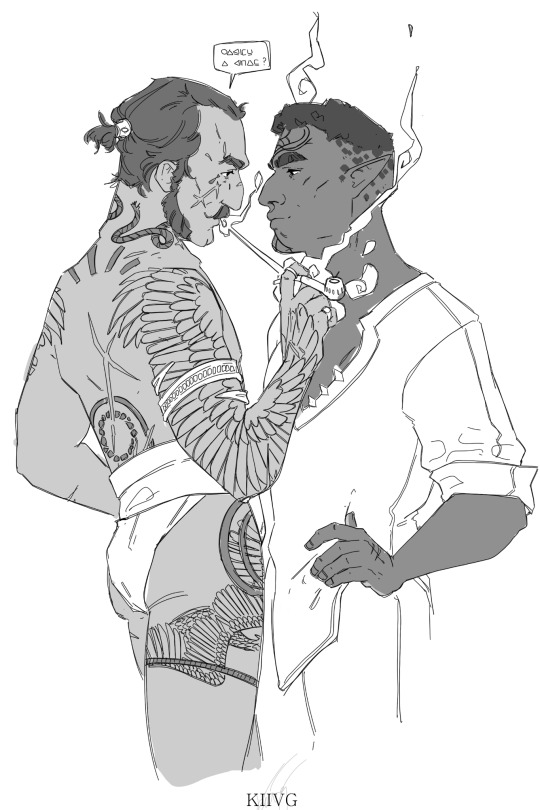
.ngl Davrin came out of nowhere and just hehehehehehhehe 👉👈😳💕.
#davrin#dragon age#dav#dragon age veilguard#dav rook#Farid Thorne#rook#davrin x rook#rook x davrin#sketch#.i started as a lord of fortune but theres like one quest in rivain lmao sooo.#.changed to a warden who was convicted of piracy and then conscripted by my hof andrastopher.#.again i make a grey warden whomdoesnt care abt being a warden lmao.#.also switched from warrior to rogue bc idk bows yknow.#.he has like 9 kids and is a father to none.#.you can pry rivaini panpoly out of my cold dead hands.#.i got a lot of approval from Davrin re convo choices so okie dokie.#.considering he was third outa of the three men and then he just pulverised them both and stole my heart lmao love him.#.other news I’m still building a house irl.#.will anyone ever decode this alphabet I made up????? probably not :).#.i would just like to add that the rivaini panoply is LoF exclusive so they have indeed pried it from my cold dead hands :(.
373 notes
·
View notes
Text
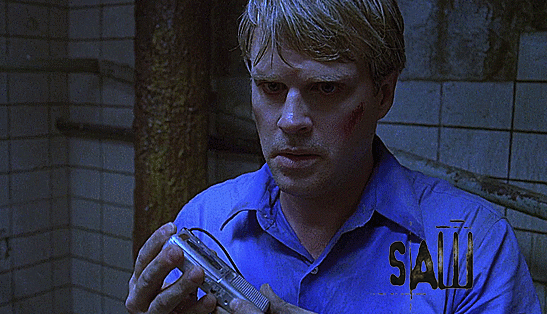
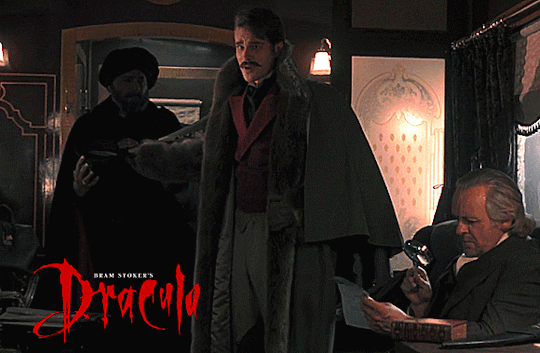





My favourite movies of Cary Elwes
#cary elwes#movies#saw#the crush#bram stoker's dracula#another country#robin hood: men in tights#operation fortune#the princess bride
1K notes
·
View notes
Text

A publicity photo from the 1969 production of “Fortune in Men’s Eyes”. It’s was produced and directed by Sal Mineo in Los Angeles. Don Johnson played the lead role of Smitty and Mineo took the role of Rocky.
350 notes
·
View notes
Text
yknow what i actually DO understand Neil on a spiritual level. my type is also short blond men who look like they’d be absolutely no good for me. hell yeah man. hell yeah
#also. just blond men in general. its a weakness.#fortunately for me in my area none of them would EVER want me (racism strikes again)#for neil everyone was just wrong and andrew was actually Great for him so. win win all aroud id say#neil josten#andrew minyard#andreil#all for the game#aftg
120 notes
·
View notes
Text
Just appreciating the beadwork and embroidery in Fangs of Fortune’s exquisite costuming. Found these on mydramalist and was drooling.









159 notes
·
View notes
Text
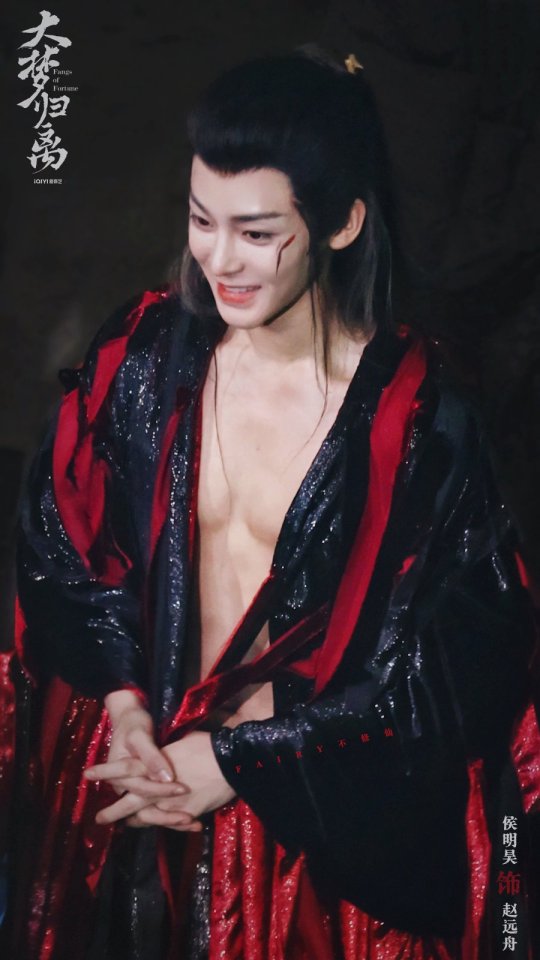
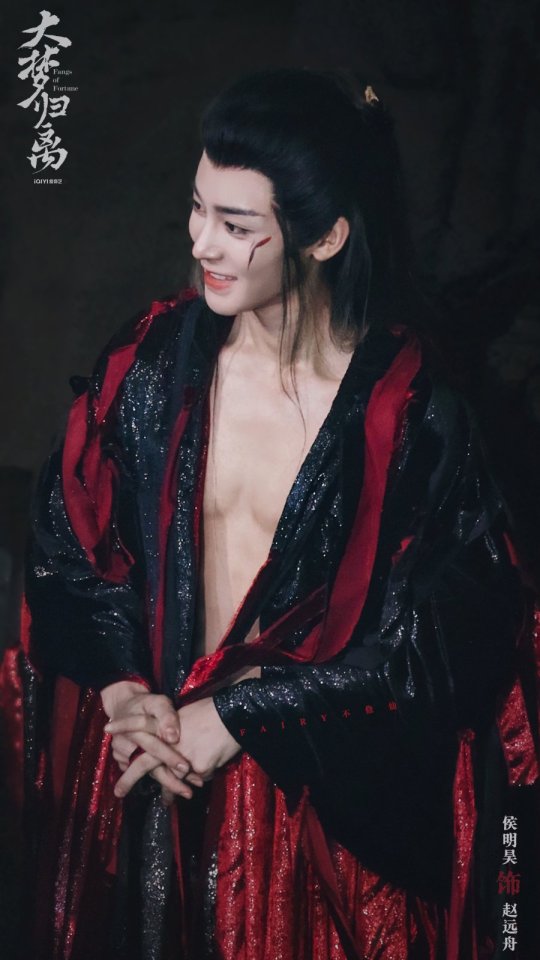
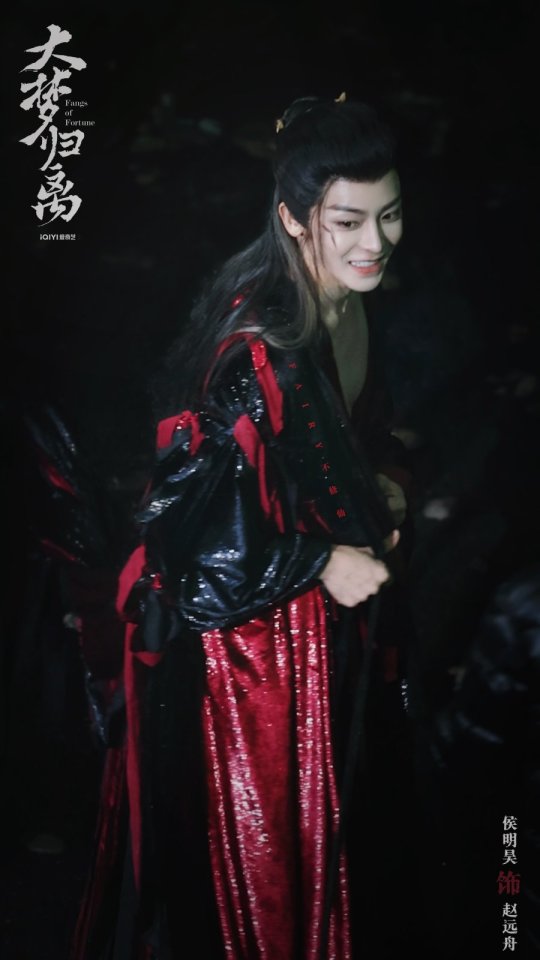
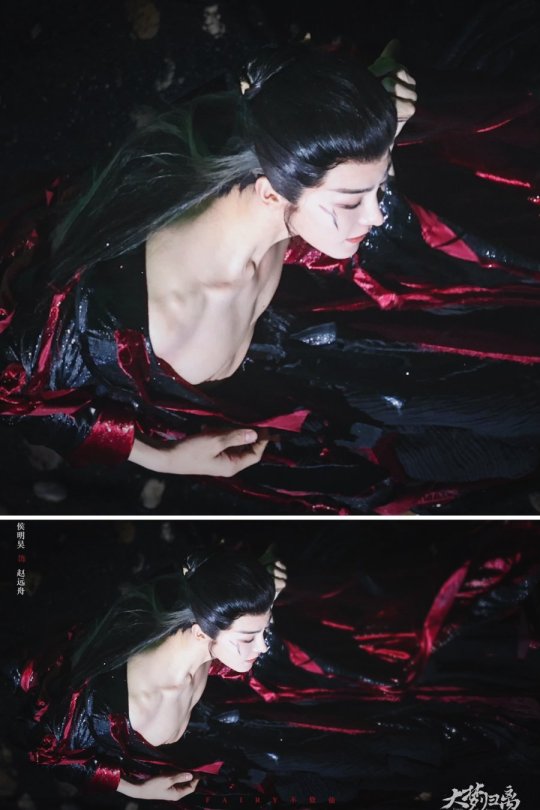
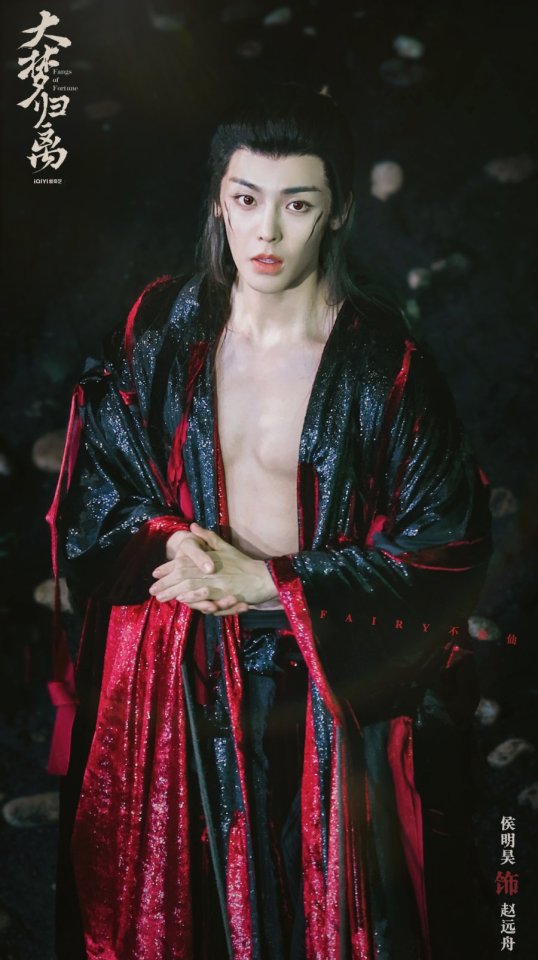
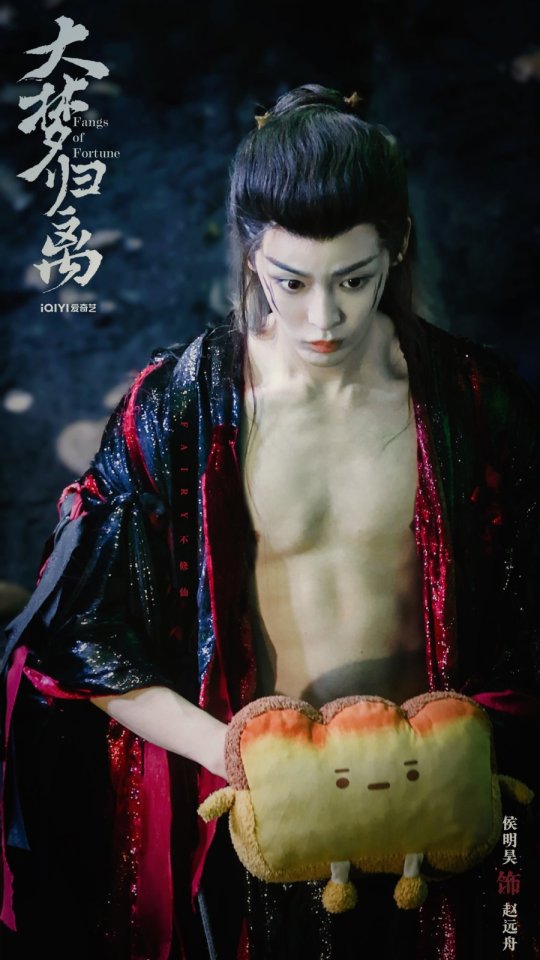
God bless whoever took these photos :D Having HMH walking around bare-chested like that, well, I can only imagine what the staff was going through, heh))) Pretty pretty Great Demon.
#we could've had it all#but alas the censorship#Guo Jingming clearly knew what he was doing#there must exist a queer AF folder on someone's laptop with the backstage footage#photos and videos and the likes)))#that would make even the straightest men drool ahah)))#fangs of fortune#fangs of fortune bts#hou minghao#neo hou#he really is the Great Demon
100 notes
·
View notes
Text



You must embrace what seeks to break you


All the way to the center



The hurt will deepen long before it heals.



Gregory Orr, The Last Love Poem I Will Ever Write: Poems, For Hölderlin// How Often I've Wished// We Were That Joke
Fangs of Fortune, ep 25
Sometimes I wonder what would've happened had ZYC turned back around instead of leaving.
#anyhow my vacation's over so i'll have less time for sad wet men making each other better/ worse in the back alleys of Tiandu city#i might switch to the girls for the time being way less complications there XD#fangs of fortune#zhuo yichen#li lun#fof ep 25#fof gif by me
77 notes
·
View notes
Text
Jane Austen: and here we have the love interest. He might have some issues, but once you get to know him, he's a great guy. Good looking, heart of gold, the works.
Charlotte Brontë: get ready for the weirdest man you have ever met.
#jane austen#charlotte bronte#jane eyre#pride and prejudice#classic literature#textpostsbymellpen#currently watching#jane eyre 1983#and oh my gosh this man is bizzare#i've never read any other bronte books but i get the feeling this is kind of a trend with their love interests#i also feel like#mr. rochester#mr. darcy#and#john thornton#should start a club for seemingly broody initially offputting Single Men of Good Fortune In Want of a(nother in rochester's case) Wife#conversations would be unbearably awkward and they would all wish their wives were there with them#margaret hale#elizabeth bennet#and jane eyre would get along splendidly
292 notes
·
View notes
Text
found more discworld books its so over for me
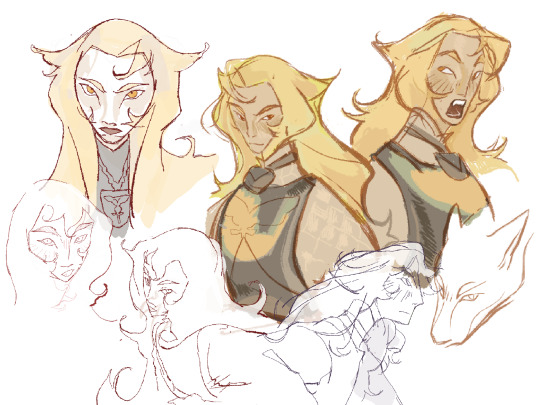
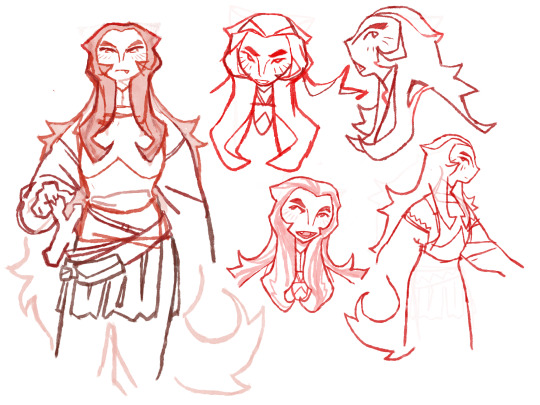
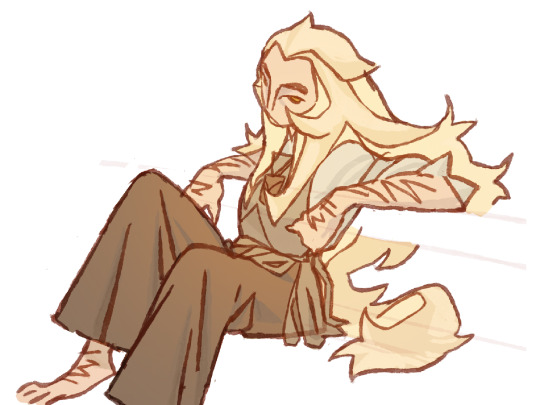

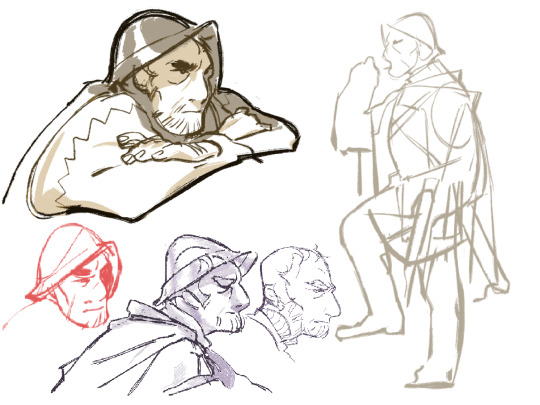
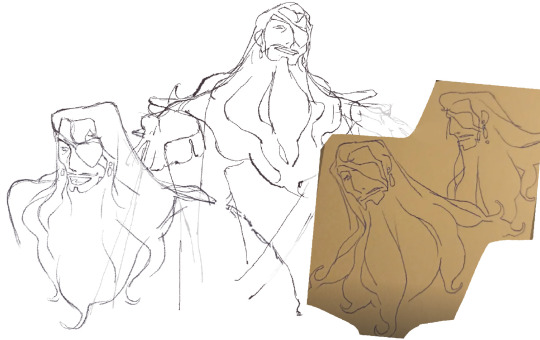

#going insane in the head but like in a normal way#this is simultaneously getting me out of artblock and the fact that i havent been able to finish a book since highschool#havent been able to find making money so im going back to the city watch novels fortunately i found the one i was missing to continue#im reading these like an evil puzzle but ykwhat that might be the intended way#still the whiplash of going from color of magic to going postal is crazy like wym they have the internet now#also like#the way its written and the way the world is described#idk i love the way u can tell its not a oarody of generic fantasy tropes anymore we’re in. the shit.#wonderful tell me more#my art#art#artists on tumblr#discworld#discworld fanart#discworld city watch#guards guards#men at arms#feet of clay#started jingo dont spoilmeee#o yea also reacher gilt is here#pirateguy easy to draw#i still gotta figure out a moist design im sorry he is supposed to look like any other bitch what am i supposed to do with that#i think its gotta be sth with the costume but i think ill die if its just a golden tumblr sexyman#oh no#angua von uberwald#carrot ironfoundersson#sam vimes#havelock vetinari#reacher gilt#gnu terry pratchett
53 notes
·
View notes
Text





JACOB FORTUNE-LLOYD & ED SPELEERS ↳ Midas Man (2024) dir. Joe Stephenson
#my previous impression of jacob was that he was stiff in both the great & bodies but hes qt so i liked him#but he really was able to emote in this part esp the breakdown scene i felt really sad for the character & wudve liked to comfort him#jacob fortune lloyd#ed speleers#midas man#perioddramaedit#gay#kiss#queer#couple#affection#intimacy#desire#film#movie#period drama#1960s#brian epstein#tex ellington#downton abbey#jimmy kent#bodies netflix#charles whiteman#joe stephenson#queer media#the beatles#beatlemania#beautiful men
173 notes
·
View notes
Text




Jeremy Stockwell and Bartholomew Miro Jr. in the theatrical production of Fortune and Men's Eyes, 1969. Photographs by Kenn Duncan.
77 notes
·
View notes
Text
A few random thoughts about the comic issue of "Men of Good Fortune" in The Sandman and how they pertain to Dreamling as a ship based on the show.
I get the sense when reading MoGF that it's a... shall we say, "young" story? It's the sort of story that has its seeds in your high school creative writing class. You're learning about English history and you're also writing short stories and you think, "Wouldn't it be cool if two guys met every 100 years to talk about these events I'm learning about and it's the same guys because they're immortal?"
I say this in part because I wrote a similar story in high school without having read MoGF, but also because it's a very simple story with no actual plot arc, nothing actually changes by the end in the original comic. The addition of Dream "missing" the meeting adds a lot of weight and consequence that isn't there in the comic. The closest it gets is, "Dream says he's not going to come to the next 1989 meeting but then a bunch of stuff happens off screen and he shows up anyway, thus confirming they are indeed friends." That is barely a plot beat of any kind, nothing really changes, it just clarifies that they are friends, which we could have suspected the whole time.
Anyway, on that note, I've got a deep-seated suspicion that in the very earliest drafts of this story, Dream was Death. Because it makes sense. Death spares a commoner on the condition that he report back every century to tell about how his life is going. Also, Death is certain that this mortal will want to die at some point because of all the horrible things he's living through, but in the end he doesn't and they become friends.
Again, this is a very simple story, basically a fable. Then this story is lifted into a new setting, the Sandman universe, and the antagonist of Death is turned into Dream but Death is still there, because Death as a figure makes much more sense than Dream as the basis for this wager.
I've commented many times before that Hob has less than nothing to go on as far as guessing Dream's identity but that one very natural conclusion he could come to is that Dream is Death because Death is much easier and thematically consistent with what happens in the story than Dream. Dream even remarks in the show (paraphrased) that, "[He] is far more terrible than Death," which objectively makes very little sense other than in their personal mannerisms.
But Dream's curiosity as to Hob's will to live isn't all that consistent with his function as Lord of Dreams, can you really tell me that the Lord of Dreams can't conceive of a mortal that would want to live forever, who wouldn't dream of living forever? IMO this is one more piece of evidence that the story was lifted from an earlier draft where there is no Dream and Death, there is only Death and Hob, with Death left in as sort of a homage to the original premise and to explain why Dream would get involved at all in such a wager.
It also kind of explains why the implications of this centuries-long friendship get largely ignored until quite late in the Sandman comics. Dream would be Hob's only constant, at least that he can speak to and isn't like the Sun and the Moon or something, and yet our only nod to this is very very late in the comics.
Again, I think this is because in a fable about Death and A Normal Guy meeting over and over as a commentary on English history, it makes perfect sense that you wouldn't really explore the interpersonal implications of how Hob feels about this guy, if Hob cares about this guy, because it's Death, clearly this is just a fable.
But once it's not Death, once it's someone else, once Dream's interactions with this guy actually don't align with his function, actually rather glaringly doesn't align with his function such that his relationship with Hob actually becomes Dream's biggest singular point of individuality, the biggest piece of proof that he is an individual person and not just his function because watching this guy live has nothing to do with his function because he's not Death, then we also begin to wonder how important are these guys to one another, as individuals, because it's not a simple, streamlined fable anymore about Death and Just A Guy meeting.
Basically, I think that as is often the case, the inconsistencies are what give some of Gaiman's juvenilia works the charm that they have. They raise more questions than they answer, because they're not rigorously plotted and the implications of certain story decisions aren't explored, for example even how magic like immortality works in this world doesn't really make consistent sense (ex. Orpheus and Hob have very different immortalities within the same story despite both being gifted by Death, one can't choose to die whenever he wants and there's no explanation as to why this is other than The Story Demands It, which is rather clumsy but does lend to a sense of myth).
It's not until much later in the author's career in the comic and (retconned with) the show that the narratives begins to inquire into things like, "What do these two individuals mean to each other as people. Does Hob mourn Dream, or think of him when he's not there? Does the singularity of Hob in Dream's life matter to him, or give him pause?" all questions that would be absurd in a simplistic fable about Death and Just A Dude but once lifted from that original context, create fascinating inconsistencies that begin to matter and become fodder for deeper explorations as seen in fanfiction and shipping these two characters.
121 notes
·
View notes
Text
Ngl the one good thing that EAH did was show how dedicated the guys are to the girls they love. Literally they would change their bad behaviors, dress nice, and do so many more for the girls they like because they care. THIS IS WHAT PEOPLE NEED TO DO. I LOVE THE SHOW FOR THIS
#wizard talks#ever after high#eah#sometimes men arent that bad#unfortunately im a lesbian so i could never be into them#more like fortunately#i heart women
84 notes
·
View notes